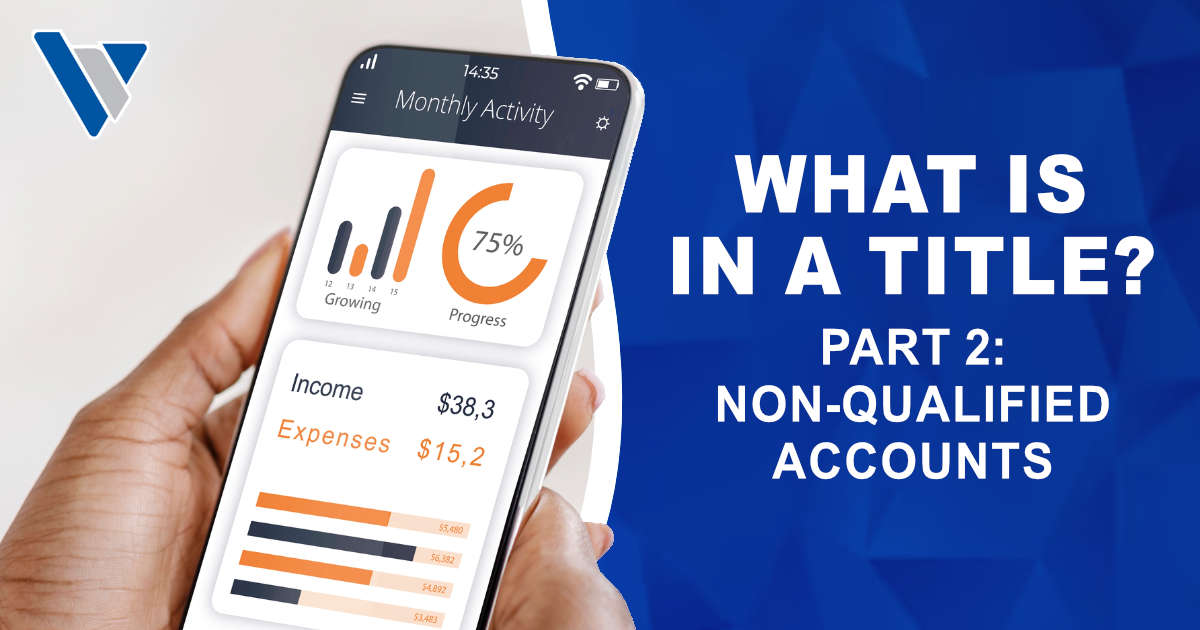In my last article, I discussed the importance of proper titles in regards to qualified accounts,...


I cannot stress the importance of you passing this article and the second in the series on to your loved ones if they are beneficiaries at some level. These two articles may save your loved ones thousands in taxes and penalties. What can have that kind of impact on your legacy? How accounts are titled before AND after your death.
This is important for both qualified accounts (IRAs, 403bs, Roth IRAs, etc.) and non-qualified accounts (individual, joint accounts, etc.).
This article will focus on qualified accounts. I will follow up with an article on titling in regards to non-qualified accounts later. An IRA is outside of a will and has its own rules for distribution upon death. These rules are established by you when you name your beneficiaries. An important designation is what is called an Eligible Designated Beneficiary (EDB). The main rule for an EDB is they cannot be more than 10 years younger than the owner of the IRA. An EDB is typically a spouse, some trusts, or an estate.
The big difference for a an EDB versus a non EDB is the EDB has multiple options that allows them to manage taxes and liquidity better. One big difference is the handling of required minimum distribution (RMD). RMDs are IRS established distributions you must take after hitting certain criteria, typically 73 years of age. A non EDB also has to liquidate an inherited IRA within 10 years but also must to take out a minimum each year. Hypothetically, an EDB and non EDB each inherit $200k. The EDB, if rolled into an inherited IRA, must take the $200k out sometime within 10 years. Recall, the distribution will be taxed. This allows the EDB to manage their taxes better. They could take all of it out in the 10th year. An EDB will be required to take out a minimum amount each year.
This is the most important; a spouse can typically choose between rolling the IRA into their own or moving into an inherited IRA. There are big differences between the two:
One concept that too many do not understand is if your tax rate is the same when you contribute to an IRA as when you take the money out, there is no benefit financially to an IRA, outside of maybe credit protection. The reason I point this out is too many prioritize deferring taxes regardless of any other consideration. Do not let taxes wag the dog. If a spouse is younger but not working, they are probably in a lower tax bracket. Options regarding liquidity might have more value than deferring taxes you will pay sooner or later.
As for children. If they are a minor, they are considered EDBs. I would highly recommend not naming minors as beneficiaries. Regardless, if you choose to do so, they will be EDBs and will be allowed to take RMDS over their life expectancy or take it out lump sum.
Based on my experience, I am a strong believer in two things when it comes to legacy building: simple is much better than complicated and option, especially regarding liquidity, rules all else.
We are here to help if you have any questions regarding how to title your accounts. Feel free to call us at 8171-717-3812.
This information is not intended to be a substitute for specific individualized tax advice. We suggest that you discuss your specific tax issues with a qualified tax advisor.